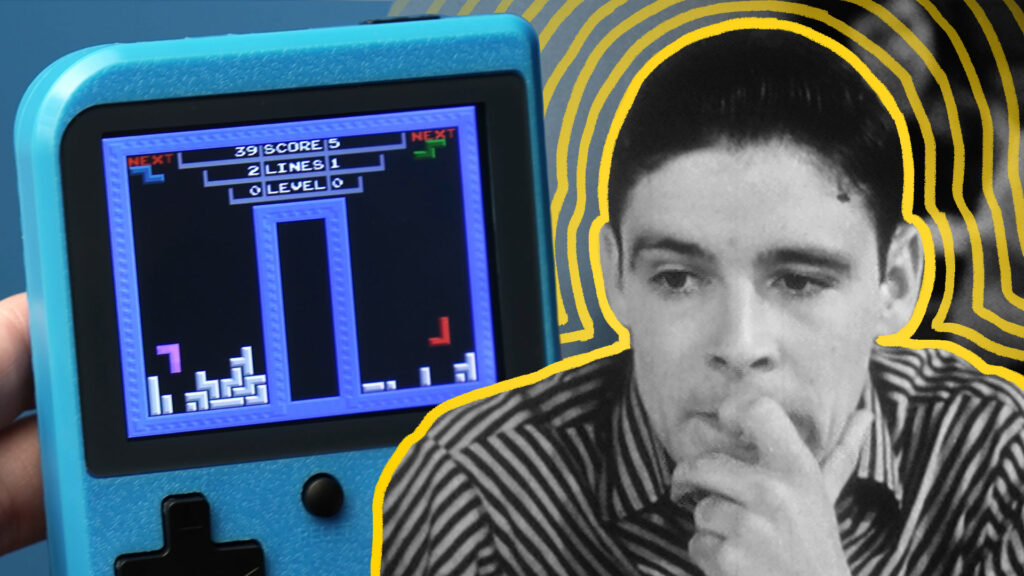When people come out of a flow state, they feel energized and refreshed. It's not exhausting you from hours of intense work and concentration as you might expect.
“Video games are one of the best ways to get into a flow state,” says Kate Sweeney, a psychology professor at the University of California, Riverside. “Multiple studies have shown that flow is most likely to occur when you do something difficult, engaging, or active. Like sitting down to watch TV or scrolling through social media. It's not just a passive thing.”
Here's a recipe for a great flow activity:
-
You need a clear goal.
-
It challenges you a bit.
-
Get instant, clear feedback about your situation.
You'll find that most video games fit this description.
test video games
Sweeney wanted to measure the effects of flow states on people in stressful situations.
Imagine waiting to hear about your job interview, college application, or medical exam results. Some might say waiting is the hardest part.
“I'm really obsessed with the experience of waiting, because it's such a uniquely stressful experience,” Sweeney explained. “You're combining two of his existentially difficult mental states: uncertainty (not knowing what's going to happen) and helplessness (not having control over your future).”
So she brought 290 undergraduate students into her lab and found a way to make them feel a little stressed out.
“What are college students interested in? Well, like most people, college students probably care about whether their peers find them attractive,” Sweeney explains. did.
Upon arriving at the lab, participants were told that their photo would be taken and that another student would rate the photo.
Don't worry, no one actually rated it, but it was an effective way to make people feel a little stressed.
They ended up playing the classic '80s video game Tetris while waiting to hear their expected ratings. The participants were divided into three groups, each playing a different version of Tetris.
If an activity is too easy or too difficult, it will be difficult to enter a flow state. Sweeney's research confirmed this. Those who played Tetris normally (the game becoming more difficult over time) reported significantly more flow than those in other groups. They also reported feeling less anxious and more positive emotions while waiting.
Sweeney saw these results reflected in research he conducted during the peak of China's COVID-19 quarantine. She worked with a team of Chinese researchers to study people aged 15 to 71 in isolated situations.
Her research found that people who spent time with flow activities had fewer severe depressive symptoms, felt less lonely, and had healthier behaviors. And the benefits grew even bigger as the quarantine dragged on.
The United States experienced a similar situation during the coronavirus outbreak. “Everyone was making bread back then, but the puzzles were sold out and weren't available online. People may not have known to call it flow, but people were dealing with uncertainty and isolation. I feel like we were looking for a flow effect that would make the period go by a little faster,” Sweeney said.
appropriate distraction
From an evolutionary perspective, the worry does make sense. This is great for keeping us alert to threats and preparing us for problems that may arise in the future. Because worry feels unpleasant, it motivates us to try to control our own destiny by preventing bad things from happening.
Flow can become a hindrance if you're using it to avoid dealing with problems or thinking about the future. “If you just want to do that activity all the time and you can't get out of that flow state, that's exactly what can go wrong with video games,” Sweeney explains.
On the other hand, once you take action, you don't want stress and anxiety to dominate your life. This is where the right kind of distraction comes in handy.
When you're in a flow state, you're focused on a specific activity, blocking out any stress or worry that might be spinning around in your brain. However, Doom scrolling on Netflix or binge-watching a new show won't activate the flow state.
“One of the great things about flow is that anyone can do it, and flow is very personal in a way. Flow aligns with what you find interesting, fun, and challenging. ” says Sweeney.
🧠 The research discussed in this article was funded by a grant from the National Science Foundation (BCS-1251672).


